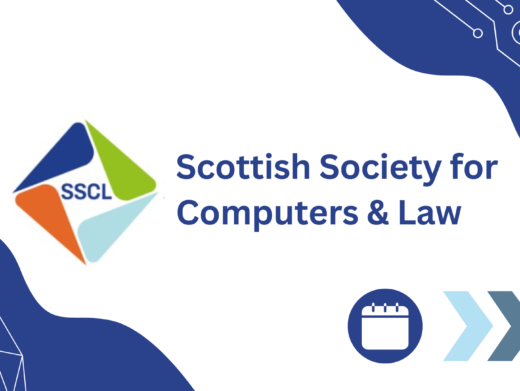The ongoing debate about what to do about illegal file-sharing has sparked a consultation exercise by the BERR. The Department is seeking views and say that they are looking for the best legislative options to address illicit P2P file-sharing. In fact, the expressed preference seems to be for a non-legislative option.
The consultation is open until
An extract from the Executive Summary is pasted below:
1.1 Copyright owners (rights holders) have struggled to develop effective business models in the digital world against a backdrop of pervasive and illicit P2P copying of copyright material. Existing remedies are slow, expensive and have proved largely ineffective. That being the case they have sought to engage with ISPs to agree ways in which they can co-operate to reduce illicit P2P traffic. Increasingly this is in the interests of ISPs as well, since high users of illicit P2P are not the most profitable customers, and are taking up bandwidth that could be utilised for more commercial uses to the benefit of ISPs and potential partners.
1.2 Because there would appear to be common interest between ISPs and rights holders to come to a voluntary solution the Government has been keen to give the different parties the time and opportunity to develop such an agreement, though we would wish to be assured that it was legal, effective and fair. More recently we have worked closely with ISPs and rights holders to arrive at a set of principles encapsulated in a memorandum of understanding (MOU) that would provide an agreed industry framework for action. This approach has garnered a good deal of support from industry but it has not been possible to arrive quickly at an agreement that covers the whole industry. As such we need to consider what regulatory action might be appropriate.
1.3 No regulatory option is straight forward. There is a complex legislative environment already in place here including privacy, eCommerce and copyright laws. We are therefore keen to hear from all stakeholders their views on the pros and cons of the options put forward, bearing in mind the existing legal framework within which such solutions need to work, and would welcome responses that are able to put a value on both the benefits and the costs.
1.4 The regulatory options identified in the consultation are: Government’s preferred option:
A co-regulatory approach consisting of:
• A self-regulatory industry approach, designing codes of practice under principles such as those set out in Annex D, covering both rights holders and ISPs and dealing with education and awareness; making content available to consumers in a choice of formats at a range of prices; and notifications to alleged infringers. The self-regulatory approach would be overseen by a regulator who would have the responsibility for approving codes of practice;
• The regulator will invite stakeholders, including ISPs and rights holders to join a group to explore effective mechanisms to deal with repeat infringers. Members of the group will look at solutions including technical measures such as traffic management or filtering and marking of legitimate content to facilitate identification, as well as ways in which rights holders can take action against the most serious infringers. The group will report within 4 months and the Government and Ofcom will consider the findings of the group, leading to a Code of Practice on mechanisms to deal with repeat infringers; and
• An obligation on ISPs to take action against subscribers to their network who are identified (by the rights holder) as infringing copyright through P2P. This obligation could be fulfilled by compliance with the codes of practice mentioned above, including on mechanisms to deal with repeat infringers.
1.5 Alternative regulatory options considered:
• Option A1: Streamlining the existing process by requiring ISPs to provide personal data relating to a given IP address to rights holders on request without them needing to go to Court
• Option A2: Requiring ISPs to take direct action against users who are identified (by the rights holder) as infringing copyright through P2P (this is essentially the same legal obligation as in the preferred option in section 8, but without any self-regulatory element).
• Option A3: Allocating a third party body to consider evidence provided by rights holders and to direct ISPs to take action against individual users as required, or to take action directly against individual users
• Option A4: Requiring that ISPs allow the installation of filtering equipment that will block infringing content (to reduce the level of copyright infringement taking place over the internet) or requiring ISPs themselves to install filtering equipment that will block infringing content




